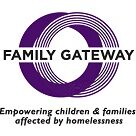Huffington Post – Dec. 10, 2016 – I’m not a Pollyanna, but I do always try to find something for which to be grateful. In the last year, both citywide and nationwide, we have borne witness to trauma, injustice and what was once an underlying rage, surfacing in so many unexpected ways. Every day as I lead our work to fight against homelessness for children and families, I am acutely aware of suffering and despair. More than I ever imagined.
I am, however, grateful for the work we do to help others. While our homeless shelter for families offers care for up to 90 days, I know that most shelters won’t take children. Most shelters won’t take boys over a certain age even if they do take families. Most shelters have very stringent requirements for entry. So our unique role in the community fills a gap, and we are actively working to become more transformational and less transactional in our approach to serving families in need. For we know how important it is to help homeless children find stability and hope.
Experiencing homelessness in early childhood is traumatic. Homeless children:
- Weigh less at birth and are sick more often than the general population.
- Lag significantly in their development.
- Have detrimental changes in their brain structure and function as a result of toxic stress.
We place a heavy emphasis on the children we serve, assessing them to determine where they have gaps in learning, making sure they get into and stay in school, providing afterschool care and a sense of normalcy to their routines. We work with parents or other primary caregivers to help them cultivate the skills needed to help children develop and grow.
More than half of our families are working. Some wake up at 4:00 or 5:00 in the morning in order to get to an early job commitment, even though most of those jobs don’t provide a living wage. A recently published report shows that Dallas leads the nation in childhood poverty. About 38 percent of Dallas children live in poverty, with a family of four making less than $24,000 annually. Despite this, we try to find ways to support the income growth and savings habits of our families, also connecting them to community resources so they can keep from being homeless in the future.
As families stabilize in shelter and move into apartments, we continue our supportive attention, wanting our families to succeed, helping them troubleshoot the inevitable trials that come their way. Some trials, however, test our resolve. Most recently, a new landlord of formerly affordable apartment housing made it clear that neither our supportive program nor our families were welcome on their property. They want to remodel and double the rent, no matter that we had a prior written and executed agreement with the former owner for us to help cover the rent for these families and continue to support them as they got back on their feet. But we forge ahead as best we can.
As I’ve said to many: we do what we can with what we have and do our best to help those who are standing before us. We try not to get discouraged about injustices. We try not to get discouraged by the more than 600, often desperate, calls we receive each month. We try to find hope. We know that for those we are able to help and support, we can make a difference. Not every family, however, can live successfully in community or tolerate the accountability we ask for in exchange for coming into care. Some days are very challenging.
But here’s where I’m grateful. We help 30 families at a time in our shelter services and 187 families who have overcome homelessness and are under our care as they begin their lives anew, scattered about our community in various apartment complexes.
It is truly a joy when families find a way forward, when our organization is blessed with gifts and resources to support the journeys of these families. And every once in awhile, a family comes along that touches our team deeply and reminds us that gratitude is available to us at any time.
Our wonderful Dallas Police Department brought a family in who had been turned away by two other shelters: one because they didn’t take children and another because the adult in the family could not produce the appropriate paperwork to demonstrate custody of the children. It was dark and cold, but the small boys coming out of the squad car were polite and respectful, with the adult in the family clearly in a state of quiet despair. Our team sprang into action. We only had one available room that was promised to another family in a few days.
While one team member worked to make sure we could safely delay the entry of the other family into the promised room, another fed the children, prepared the room for this particular family’s needs, and located clothes and coats for the boys who arrived with only their backpacks. It was a complicated case requiring special outreach to an incarcerated parent to demonstrate custody, but our team persisted. We were not turning this family away in the night. We had one empty room. We would make it happen.
The next day, one of the boys approached me. “Excuse me, ma’am. Is there church here? I want to give thanks.” My response, “Young man, church is anywhere and everywhere you want it to be. Feel free to just sit quietly and think about why you’re grateful. That can be your church, no matter where you are.”
Ellen Magnis is the Executive Director of Family Gateway in Dallas, Texas, providing services and support to homeless children and their families. This piece was written in association with The OpEd Project.
